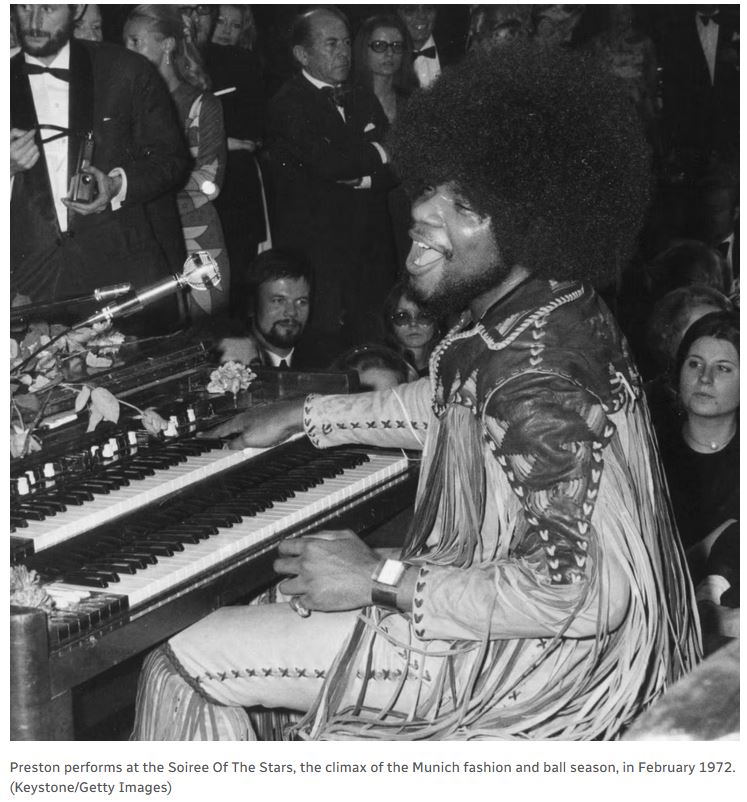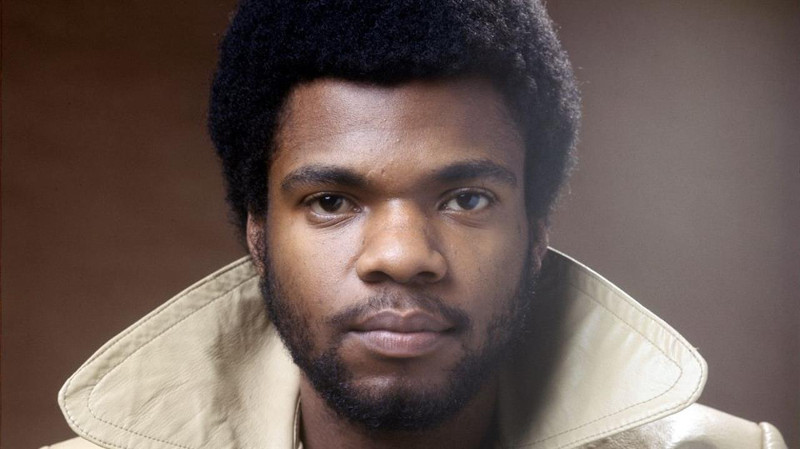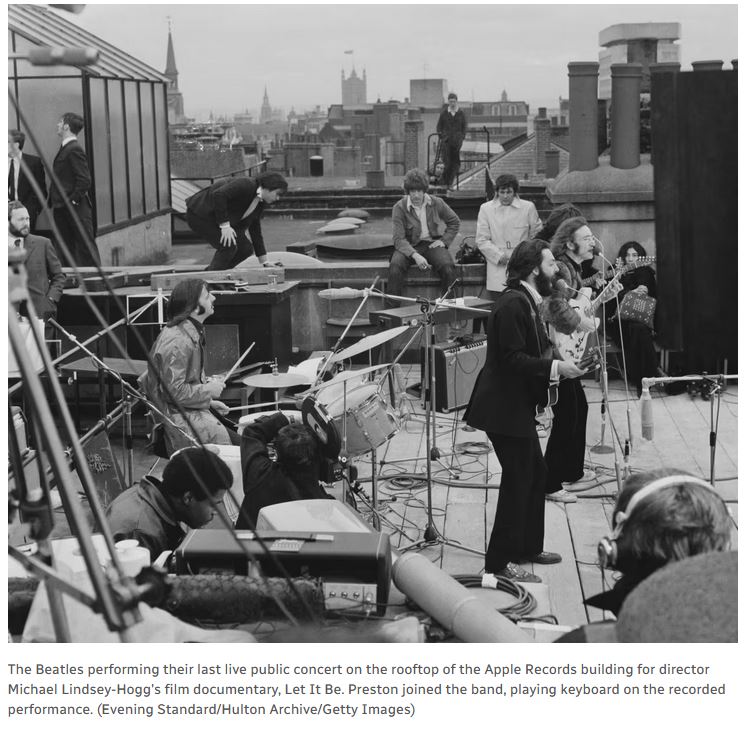
There are many documentaries and docudramas about performing artists lately. So much so that people are joking that everyone is getting one. Soon to open will be Maria, starring Angelina Jolie playing the Italian coloratura/diva. But a gripping new documentary, That’s the Way God Planned It: Billy Preston, about the great, nearly gone-missing, Los Angeles-born songwriter/performer/keyboardist, the ultimate stage-and-recording studio “sideman,” merits your attention. I found its musical insights spot-on and its portrait of a vital contributor to the Golden Age of rock illuminating. The movie revisits that special time through the prism of a musical Zelig. Its rendering of the toll extracted by intense human artistry is prescient. I cannot recommend it enough.

Preston (1946-2006) was a musical prodigy, hitting ivories at a young age and singing gospel in Central Los Angeles’s Black church scene of the early fifties. (He was a very good singer and dancer.) His trajectory, from that start to being present in Hamburg at the club that launched the Beatles, then proceeding to Abbey Road where he was the veritable Fifth Beatle, the “Black Beatle,” is too-untold a story. Those who lived the era, as did I, already know that Preston’s virtuosic panache on Hammond organ underpinned the Fab Four’s adventurous forays as a mini symphony orchestra. From that era, a deep bond grew, in particular, with George Harrison. (Harrison’s surviving wife, Olivia, is a producer of the film, which is nice.) A contract with A&M Records put him on tracks of Barbra Streisand, and more, in Herb Alpert’s creative klatch on LaBrea Avenue. Then there was Sly Stone, Ray Charles, Rufus. Then came the Rolling Stones, Eric Clapton, and Preston’s own GRAMMY-winning solo artist career, with several hit records–memorably cheerful, soulful, upbeat songs like the one quoted in the doc’s title.
(The material on Ray Charles alone merits a short film. Just incredible.)
The array of talking heads in this documentary is notably informative and heartfelt: Billy Porter, Ringo Starr, among several Preston colleagues and friends. Their sound bites convey real information and advance the narrative. A track near to the movie’s end, in which Clapton describes his caring for a fellow alcoholic to the point of tearing up, is both credible and moving. For Preston had demons. The survivor of childhood sexual abuse, he was a gay man before, how can I put this properly, that was a “thing.” Deeply closeted within the aggressively heterosexual culture of sixties rock and roll, his private life stayed that way. But as time wore on, his sexuality became a burden he did not carry well. There was extreme substance abuse.

My congratulations to the film’s producers and Paris Barclay, its director, for whom telling Billy Preston’s story was clearly a labor of love. The film hits a sweet spot of advocating for its subject while not shying from uncomfortable truths. In its final moments, the movie makes absolutely clear Preston’s unique musical gifts and why he mattered; why he approached true stardom, but failed to cross that indelible line; it clarifies, as well, the many he influenced who did.
A must-see movie that I would pair with the documentary on Little Richard — a film I thought did not get sufficient attention. A perfect example: everyone knows that Jimi Hendrix toured with Richard. But Billy Preston did too!
Arts journalist Debra Levine founded artsmeme in 2008.

Fantastic! Billy Preston was a big part of my music life way back in the day. Very much looking forward to seeing the flick!